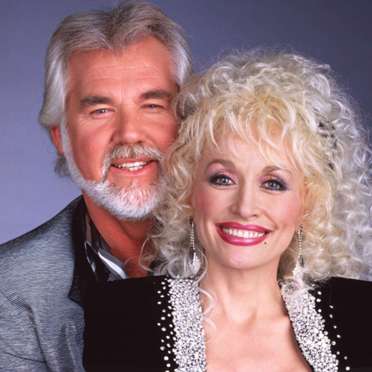 23rd March, 2020
23rd March, 2020Kenny Rogers, the smooth, Grammy-winning balladeer who spanned jazz, folk, country and pop with such hits as Lucille, Lady and Islands in the Stream and embraced his persona as The Gambler on records and on TV, died Friday night. He was 81.
He died at home in Sandy Springs, Georgia, representative Keith Hagan told The Associated Press. He was under hospice care and died of natural causes, Hagan said.
The Houston-born performer with the husky voice and silver beard sold tens of millions of records, won three Grammys and was the star of TV movies based on The Gambler and other songs, making him a superstar in the ‘70s and ’80s. Rogers thrived for some 60 years before retired from touring in 2017 at age 79. Despite his crossover success, he always preferred to be thought of as a country singer.
“You either do what everyone else is doing and you do it better, or you do what no one else is doing and you don’t invite comparison,” Rogers told The Associated Press in 2015. “And I chose that way because I could never be better than Johnny Cash or Willie or Waylon at what they did. So I found something that I could do that didn’t invite comparison to them. And I think people thought it was my desire to change country music. But that was never my issue.”
Kenny was one of those artists who transcended beyond one format and geographic borders. Rogers was a global superstar who helped introduce country music to audiences all around the world.
Rogers was a five-time CMA Award winner, as well as the recipient of the CMA's Willie Nelson Lifetime Achievement Award in 2013, the same year he was inducted into the Country Music Hall of Fame. He received 10 awards from the Academy of Country Music. He sold more than 47 million records in the United States alone, according to the Recording Industry Association of America.
A true rags-to-riches story, Rogers was raised in public housing in Houston Heights with seven siblings. As a 20-year-old, he had a gold single called That Crazy Feeling, under the name Kenneth Rogers, but when that early success stalled, he joined a jazz group, the Bobby Doyle Trio, as a standup bass player.
But his breakthrough came when he was asked to join the New Christy Minstrels, a folk group, in 1966. The band reformed as First Edition and scored a pop hit with the psychedelic song, Just Dropped In (To See What Condition My Condition Was In).” Rogers and First Edition mixed country-rock and folk on songs like Ruby, Don’t Take Your Love To Town,” a story of a Vietnam veteran begging his girlfriend to stay.
After the group broke up in 1974, Rogers started his solo career and found a big hit with the sad country ballad Lucille, in 1977, which crossed over to the pop charts and earned Rogers his first Grammy. Suddenly the star, Rogers added hit after hit for more than a decade.
The Gambler, the Grammy-winning story song penned by Don Schlitz, came out in 1978 and became his signature song with a signature refrain: “You gotta know when to hold ‘em, know when to fold ’em.” The song spawned a hit TV movie of the same name and several more sequels featuring Rogers as professional gambler Brady Hawkes, and led to a lengthy side career for Rogers as a TV actor and host of several TV specials.
Other hits included You Decorated My Life, Every Time Two Fools Collide with Dottie West, Don’t Fall In Love with a Dreamer with Kim Carnes, and Coward of the County. One of his biggest successes was Lady, written by Lionel Richie, a chart topper for six weeks straight in 1980. Richie said in a 2017 interview with the AP that he often didn’t finish songs until he had already pitched them, which was the case for Lady.
Over the years, Rogers worked often with female duet partners, most memorably, Dolly Parton. The two were paired at the suggestion of the Bee Gees’ Barry Gibb, who wrote Islands in the Stream.
Rogers is survived by his wife, Wanda, and his sons Justin, Jordan, Chris and Kenny Jr., as well as two brothers, a sister and grandchildren, nieces and nephews, his representative said.
